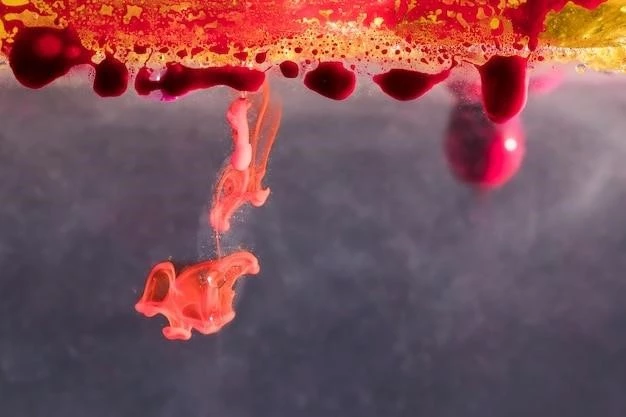Understanding Capillary Venous Leptomeningeal Angiomatosis
Capillary Venous Leptomeningeal Angiomatosis is a rare disorder affecting the blood vessels in the brain and spinal cord. Understanding this condition is crucial for proper management and care. Learn about the intricacies of this condition and how it can impact individuals.
Symptoms of Capillary Venous Leptomeningeal Angiomatosis
Individuals with Capillary Venous Leptomeningeal Angiomatosis may experience a range of symptoms, including headaches, seizures, neurological deficits, and cognitive impairments. Other common symptoms include visual disturbances, hearing problems, and difficulties with balance and coordination. In some cases, individuals may exhibit developmental delays, behavioral changes, or hydrocephalus. It is essential to seek medical attention if any of these symptoms are present, as early diagnosis and treatment can help manage the condition effectively.
Causes of Capillary Venous Leptomeningeal Angiomatosis
The exact cause of Capillary Venous Leptomeningeal Angiomatosis is not fully understood. However, it is believed to be a congenital vascular malformation that occurs during early fetal development. Genetic mutations may also play a role in the development of this condition. Research suggests that certain genetic factors can predispose individuals to developing abnormal blood vessel growth in the brain and spinal cord, leading to the manifestation of Capillary Venous Leptomeningeal Angiomatosis. Further studies are needed to gain a deeper understanding of the underlying causes and risk factors associated with this rare condition.
Diagnosis and Treatment of Capillary Venous Leptomeningeal Angiomatosis
Diagnosing Capillary Venous Leptomeningeal Angiomatosis often involves a combination of imaging tests such as MRI or CT scans, as well as neurological evaluations to assess symptoms and deficits. Treatment options vary depending on the severity of the condition and may include medications to manage symptoms, surgical interventions to address abnormalities in the blood vessels, and therapies to improve neurological function. It is essential for individuals diagnosed with this rare condition to work closely with a multidisciplinary team of healthcare professionals to tailor a treatment plan that meets their specific needs and optimizes their quality of life.
Prognosis and Recovery from Capillary Venous Leptomeningeal Angiomatosis
The prognosis for individuals with Capillary Venous Leptomeningeal Angiomatosis varies depending on the extent of brain and spinal cord involvement, the severity of symptoms, and the response to treatment. While some individuals may experience long-term neurological deficits, others may show improvement with appropriate management strategies. Recovery from this condition often involves a combination of therapies, ongoing monitoring, and support services to enhance quality of life. It is important for individuals and their caregivers to maintain open communication with healthcare providers to address any concerns and facilitate the best possible outcome.
Research Advances in Capillary Venous Leptomeningeal Angiomatosis
Ongoing research into Capillary Venous Leptomeningeal Angiomatosis aims to improve understanding of the underlying mechanisms, develop more targeted treatments, and enhance outcomes for affected individuals. Advances in imaging technology have enabled more precise diagnosis and monitoring of the condition. Additionally, molecular studies are uncovering genetic factors that may contribute to the development of this rare disorder. Clinical trials are exploring new therapeutic approaches to manage symptoms and potentially slow disease progression. Collaborative efforts among researchers, clinicians, and advocacy groups are essential in advancing knowledge and finding innovative solutions for Capillary Venous Leptomeningeal Angiomatosis.
Living with Capillary Venous Leptomeningeal Angiomatosis⁚ Tips and Support

Living with Capillary Venous Leptomeningeal Angiomatosis can present challenges, but with the right strategies and support, individuals can enhance their quality of life. Tips for managing daily life with this condition include maintaining regular follow-ups with healthcare providers, adhering to treatment plans, engaging in physical and mental activities to promote well-being, and seeking emotional support from family, friends, or support groups. It is important to stay informed about the latest research and treatment options available. A multidisciplinary approach involving neurologists, neurosurgeons, and other specialists can provide comprehensive care and address specific needs.
Capillary Venous Leptomeningeal Angiomatosis in Children⁚ What Parents Should Know
Parents of children with Capillary Venous Leptomeningeal Angiomatosis should be aware of the potential challenges their child may face and the importance of early diagnosis and intervention. Monitoring for symptoms such as developmental delays, seizures, and cognitive issues is crucial for prompt medical attention. Collaborating with a team of pediatric specialists, including neurologists and genetic counselors, can help guide treatment decisions and provide support. Parents should also seek emotional support for themselves and their child, engage in open communication with healthcare providers, and stay informed about the latest research and resources available for managing this rare condition in children.
